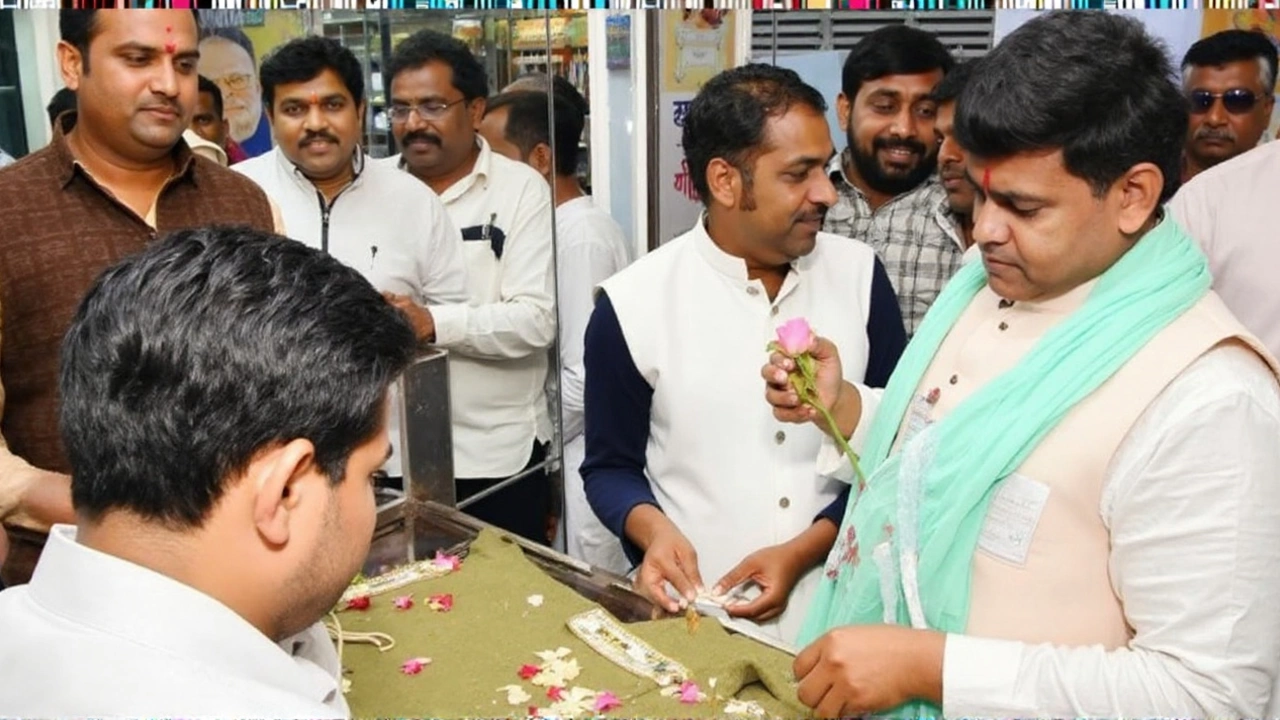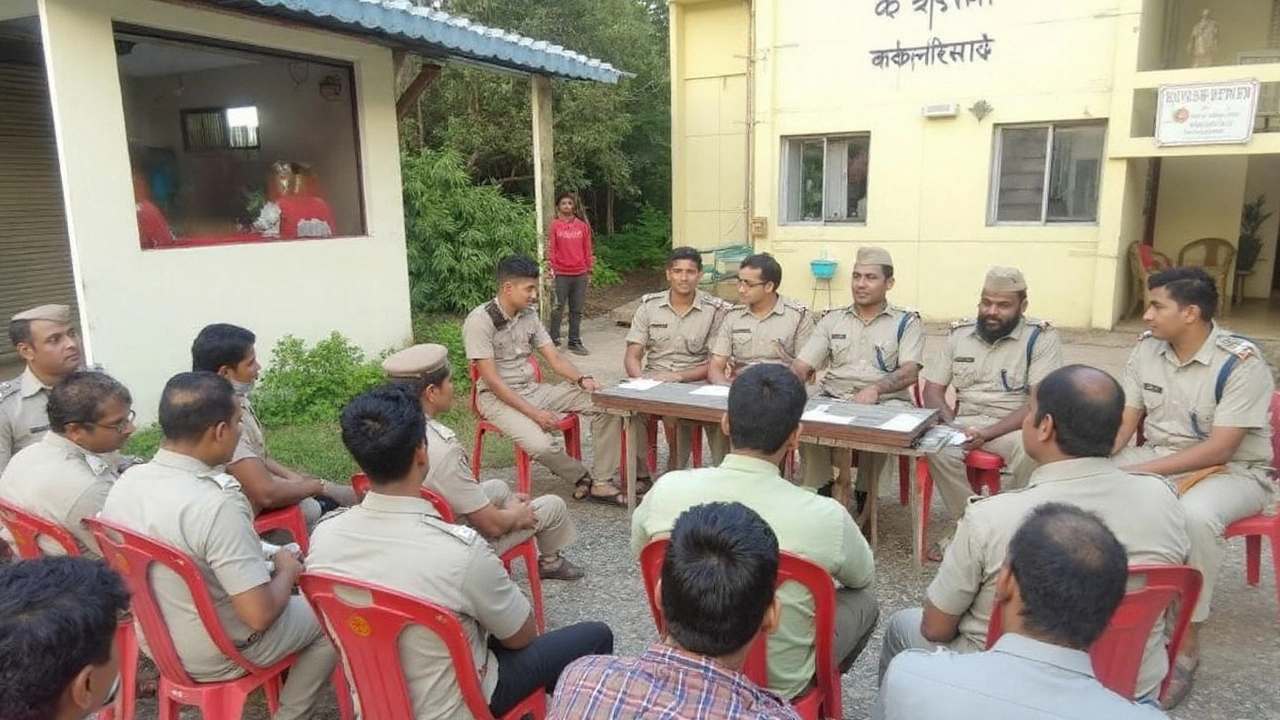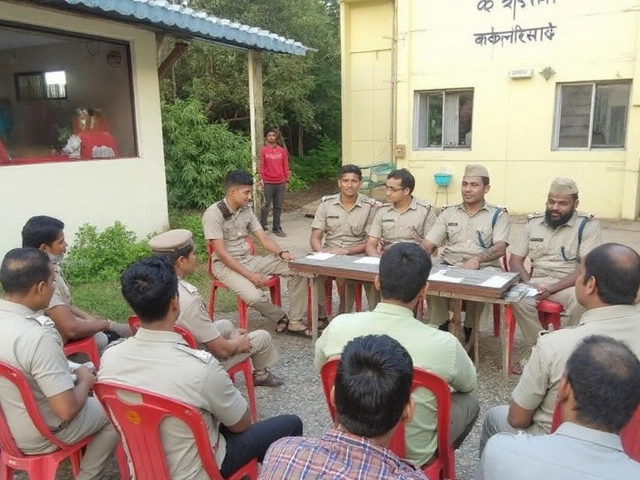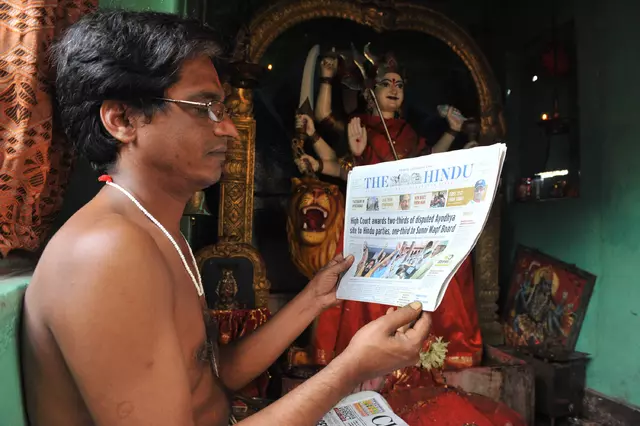Across ministries, municipal offices and factories, the chatter is the same: "Get our salaries before Dussehra, please." For many government employees, a delayed credit can mean missing out on buying sweets, new clothes, or even participating in the fire‑crackers that light up the night. The request isn’t a seasonal whim; it’s a practical plea for financial certainty when expenses spike.
Why the Push for Early Salary Disbursement?
India’s major festivals, Dussehra included, are more than religious observances – they’re weeks of family gatherings, school fees, gifts and elaborate meals. A typical household may spend anywhere from a few thousand to tens of thousands of rupees during this period. For a government clerk receiving a monthly salary that barely covers rent and utilities, an unexpected delay can throw the whole budget off balance.
Unions representing teachers, clerks, police personnel and informal sector workers have started filing formal representations with finance ministries, citing past instances where salary credit hit accounts days after the festival began. Their argument rests on a simple premise: predictable cash flow is essential for workers to honour social obligations without resorting to high‑interest loans.
In many states, the government already issues circulars urging banks to expedite payments around festivals. Yet the lack of a unified, enforceable timetable means the practice remains patchy. The demand for a structured pre-festival salary payment regime is therefore gaining traction as a rights‑based issue rather than a convenience.

State Wage Revisions, the Bihar Example, and the Bigger Policy Picture
Bihar’s recent minimum‑wage overhaul provides a concrete backdrop to the conversation. Effective April 2025, the state introduced Variable Dearness Allowance (VDA) linked to the All India Consumer Price Index for Industrial Workers. The new brackets are:
- Unskilled workers: ₹412 per day (≈₹10,712 per month)
- Semi‑skilled workers: ₹428 per day (≈₹11,128 per month)
- Skilled workers: ₹521 per day (≈₹13,546 per month)
- Highly skilled workers: ₹636 per day (≈₹16,536 per month)
These figures include basic pay plus VDA, marking a modest uplift over previous rates. However, the timing coincides with the Dussehra season, prompting fresh calls for the revised wages to be disbursed ahead of the festival to maximise their impact.
Beyond Bihar, other states are also revisiting wage structures, often tied to inflation indices. The pattern suggests a broader acknowledgement that wage policies must be responsive to cost‑of‑living spikes, especially those that cluster around cultural holidays.
The central government’s 8th Pay Commission, slated to propose significant salary hikes for central employees, adds another layer to the debate. While the commission is expected to recommend raises that could boost take‑home pay by 10‑15 %, implementation may not kick in until FY27. This lag fuels frustration among staff who feel caught between rising living costs and delayed remuneration.
Labor federations argue that if the Pay Commission’s recommendations are to be credible, they must be paired with a reliable payout calendar that respects major festivals. They point out that earlier commissions did issue festival‑specific guidelines, but adherence varied across departments.
Meanwhile, finance ministries are caught between budgetary constraints and political pressure. Disbursing salaries earlier can strain cash‑flow projections, especially in states juggling multiple expenditure commitments. Some officials suggest using short‑term borrowing or reallocating discretionary funds to meet the demand, but critics warn this could set unsustainable precedents.
What emerges is a nuanced debate: on one side, workers need predictable cash to fulfill cultural duties; on the other, administrators wrestle with fiscal realities. The dialogue is prompting policymakers to consider a more systematic approach—perhaps a national calendar that earmarks festival weeks for early salary credit, backed by statutory guidance.
As Dussehra approaches, the pressure is unlikely to ease. Workers will continue to lobby, unions will push for legislative safeguards, and ministries will have to balance budgetary prudence with the social expectation that festivals are celebrated without financial strain. The outcome could reshape how India synchronises its payroll cycles with its cultural calendar, setting a precedent for future holidays.






Post A Comment